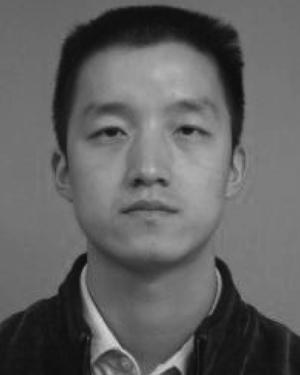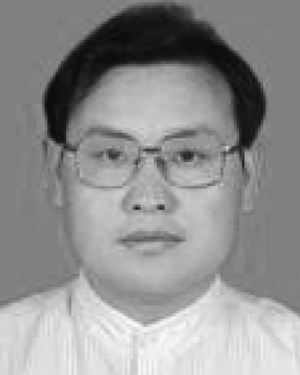Abstract:
The purpose of this paper is to explore an intelligent identification method of autonomous vehicle moving trajectory based on friction nano-generator. This method uses fr...Show MoreMetadata
Abstract:
The purpose of this paper is to explore an intelligent identification method of autonomous vehicle moving trajectory based on friction nano-generator. This method uses friction nano-generator to obtain energy from the friction between the vehicle tire and the ground, and realizes the perception and recognition of the vehicle motion state. On this basis, through the analysis and processing of the motion state data, an intelligent identification model of the moving trajectory of autonomous vehicles is established to realize the intelligent prediction and control of the driving trajectory of vehicles. Therefore, a large number of vehicle movement state data is collected, and the data are preprocessed and feature extracted, and an intelligent recognition model of vehicle movement trajectory is constructed by machine learning method. Finally, the accuracy and stability of the model are verified by experiments, and the feasibility and practicability of the method are proved. The results show that the intelligent identification method of autonomous vehicle trajectory based on friction nano-generator has high accuracy and practicability. In the field verification environment, the lateral position deviation, heading angle deviation and minimum radius of curvature of the trajectory recognition algorithm for autonomous vehicles are 0.2193m, 10deg and 5.9m, respectively. The lateral deviation of the real vehicle test is kept within 0.5m, and the lateral acceleration is infinitely close to zero. This autonomous path identification is extremely stable. This method can not only realize intelligent prediction and control of vehicle trajectory, but also provide data support for self-learning and optimization of autonomous vehicles.
Published in: IEEE Transactions on Intelligent Transportation Systems ( Volume: 25, Issue: 3, March 2024)
Funding Agency:

School of Computer and Information Science, Hubei Engineering University, Xiaogan, China
Caichang Ding received the B.Sc. degree from the School of Mechanical and Electronic Information, China University of Geosciences, in 2003, and the M.Sc. and Ph.D. degrees from the School of Computer, Wuhan University, in 2006 and 2014, respectively. He is currently an Associate Professor with the School of Computer and Information Science, Hubei Engineering University, Xiaogan, China.
Caichang Ding received the B.Sc. degree from the School of Mechanical and Electronic Information, China University of Geosciences, in 2003, and the M.Sc. and Ph.D. degrees from the School of Computer, Wuhan University, in 2006 and 2014, respectively. He is currently an Associate Professor with the School of Computer and Information Science, Hubei Engineering University, Xiaogan, China.View more

School of Computer Science, Hubei University of Technology, Wuhan, China
Chao Li received the B.Sc. degree from the School of Mechanical and Electronic Information, China University of Geosciences, in 2003, and the Ph.D. degree in computer science from Northeastern University, Shenyang, China, in 2009. He is currently an Assistant Professor with the School of Computer Science, Hubei University of Technology, Wuhan, China.
Chao Li received the B.Sc. degree from the School of Mechanical and Electronic Information, China University of Geosciences, in 2003, and the Ph.D. degree in computer science from Northeastern University, Shenyang, China, in 2009. He is currently an Assistant Professor with the School of Computer Science, Hubei University of Technology, Wuhan, China.View more

Institute for AI Industrial Technology Research, Hubei Engineering University, Xiaogan, China
Zenggang Xiong is currently a Professor with the Institute for AI Industrial Technology Research, Hubei Engineering University, Xiaogan, China.
Zenggang Xiong is currently a Professor with the Institute for AI Industrial Technology Research, Hubei Engineering University, Xiaogan, China.View more

Institute for AI Industrial Technology Research, Hubei Engineering University, Xiaogan, China
Zhimin Li is currently a Professor with the Institute for AI Industrial Technology Research, Hubei Engineering University, Xiaogan, China.
Zhimin Li is currently a Professor with the Institute for AI Industrial Technology Research, Hubei Engineering University, Xiaogan, China.View more

Institute for AI Industrial Technology Research, Hubei Engineering University, Xiaogan, China
Qiyang Liang is currently an Assistant Professor with the Institute for AI Industrial Technology Research, Hubei Engineering University, Xiaogan, China.
Qiyang Liang is currently an Assistant Professor with the Institute for AI Industrial Technology Research, Hubei Engineering University, Xiaogan, China.View more

School of Computer and Information Science, Hubei Engineering University, Xiaogan, China
Caichang Ding received the B.Sc. degree from the School of Mechanical and Electronic Information, China University of Geosciences, in 2003, and the M.Sc. and Ph.D. degrees from the School of Computer, Wuhan University, in 2006 and 2014, respectively. He is currently an Associate Professor with the School of Computer and Information Science, Hubei Engineering University, Xiaogan, China.
Caichang Ding received the B.Sc. degree from the School of Mechanical and Electronic Information, China University of Geosciences, in 2003, and the M.Sc. and Ph.D. degrees from the School of Computer, Wuhan University, in 2006 and 2014, respectively. He is currently an Associate Professor with the School of Computer and Information Science, Hubei Engineering University, Xiaogan, China.View more

School of Computer Science, Hubei University of Technology, Wuhan, China
Chao Li received the B.Sc. degree from the School of Mechanical and Electronic Information, China University of Geosciences, in 2003, and the Ph.D. degree in computer science from Northeastern University, Shenyang, China, in 2009. He is currently an Assistant Professor with the School of Computer Science, Hubei University of Technology, Wuhan, China.
Chao Li received the B.Sc. degree from the School of Mechanical and Electronic Information, China University of Geosciences, in 2003, and the Ph.D. degree in computer science from Northeastern University, Shenyang, China, in 2009. He is currently an Assistant Professor with the School of Computer Science, Hubei University of Technology, Wuhan, China.View more

Institute for AI Industrial Technology Research, Hubei Engineering University, Xiaogan, China
Zenggang Xiong is currently a Professor with the Institute for AI Industrial Technology Research, Hubei Engineering University, Xiaogan, China.
Zenggang Xiong is currently a Professor with the Institute for AI Industrial Technology Research, Hubei Engineering University, Xiaogan, China.View more

Institute for AI Industrial Technology Research, Hubei Engineering University, Xiaogan, China
Zhimin Li is currently a Professor with the Institute for AI Industrial Technology Research, Hubei Engineering University, Xiaogan, China.
Zhimin Li is currently a Professor with the Institute for AI Industrial Technology Research, Hubei Engineering University, Xiaogan, China.View more

Institute for AI Industrial Technology Research, Hubei Engineering University, Xiaogan, China
Qiyang Liang is currently an Assistant Professor with the Institute for AI Industrial Technology Research, Hubei Engineering University, Xiaogan, China.
Qiyang Liang is currently an Assistant Professor with the Institute for AI Industrial Technology Research, Hubei Engineering University, Xiaogan, China.View more


